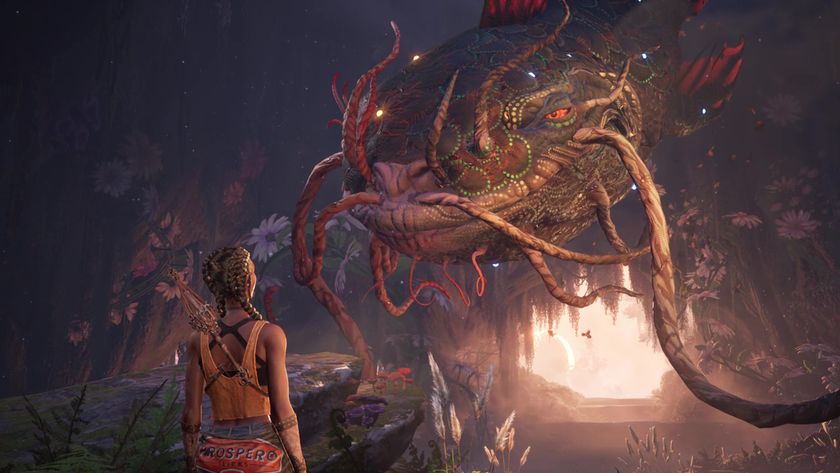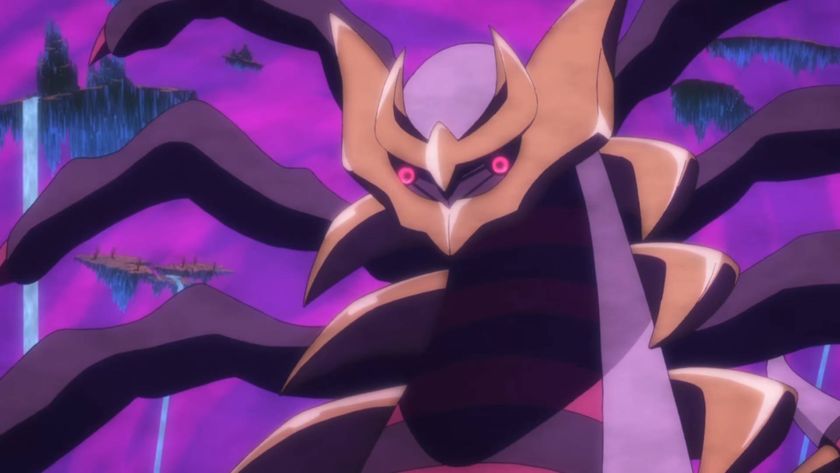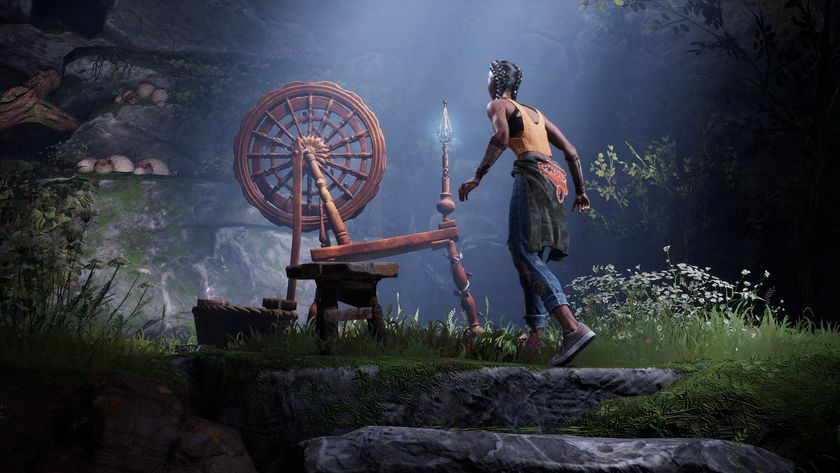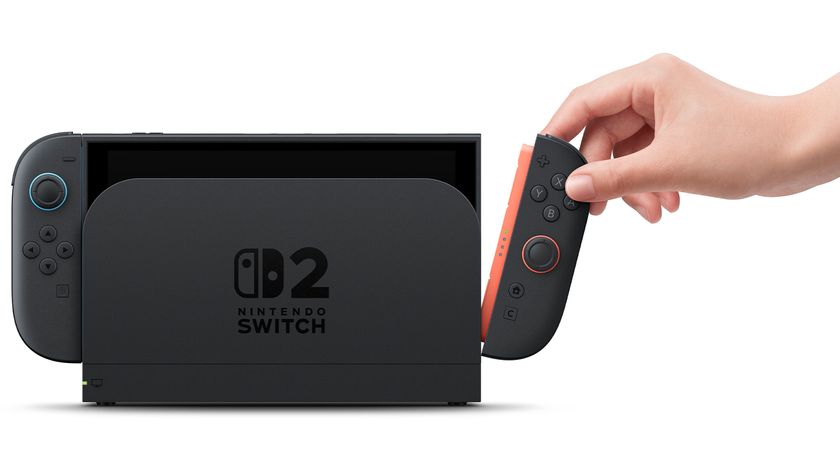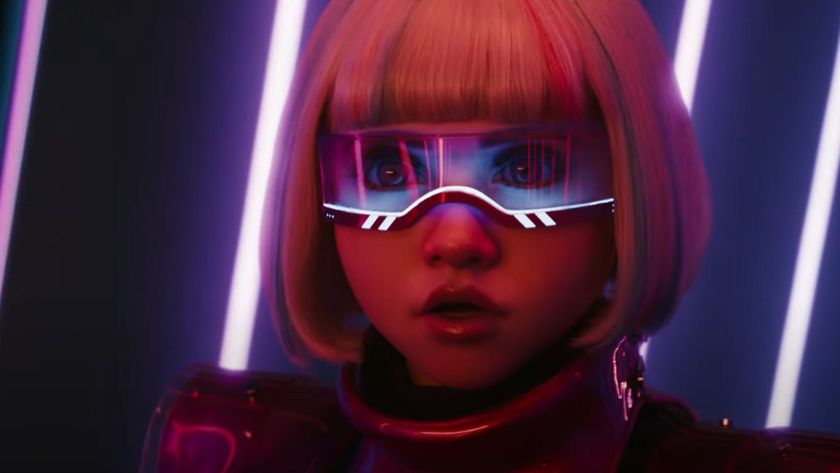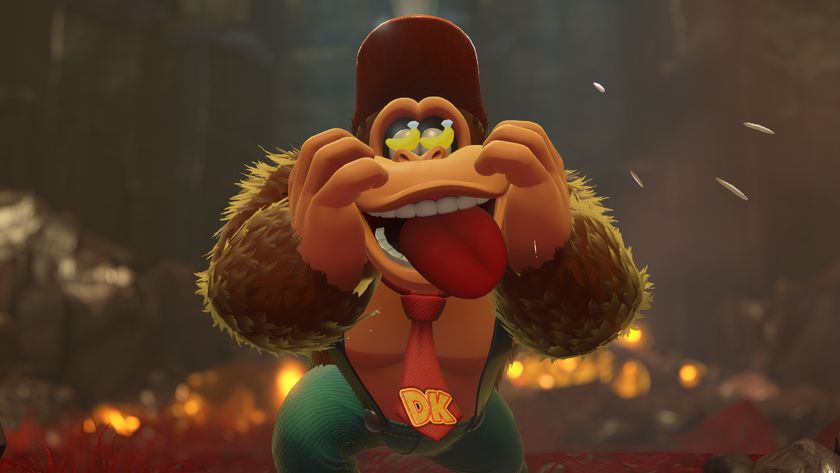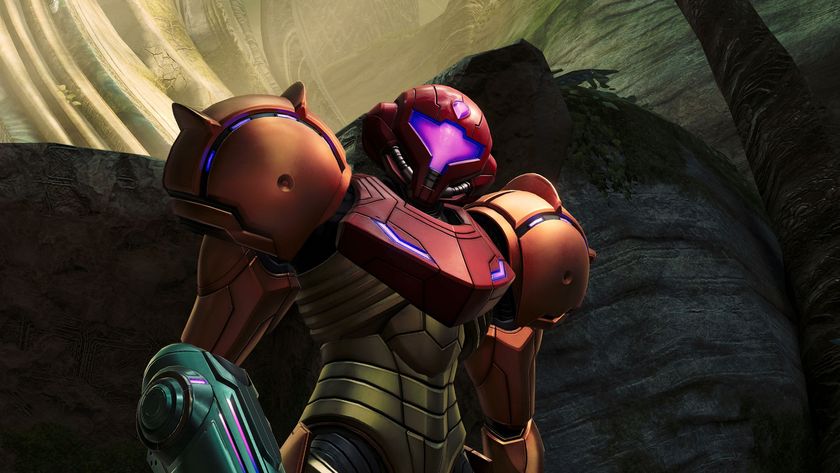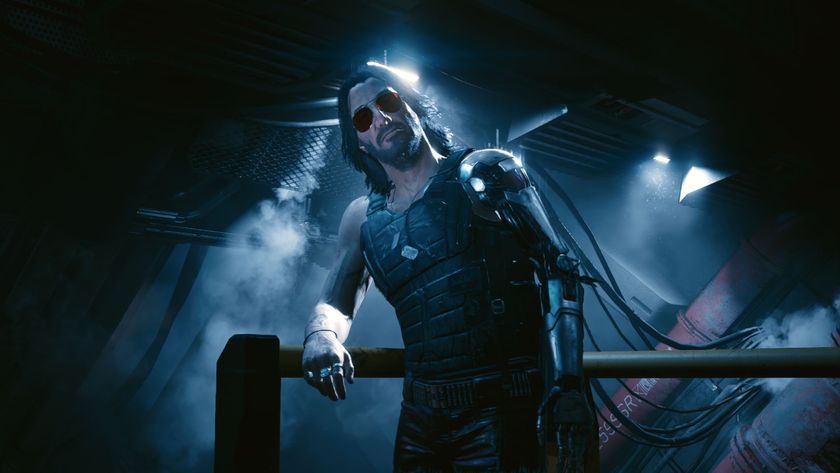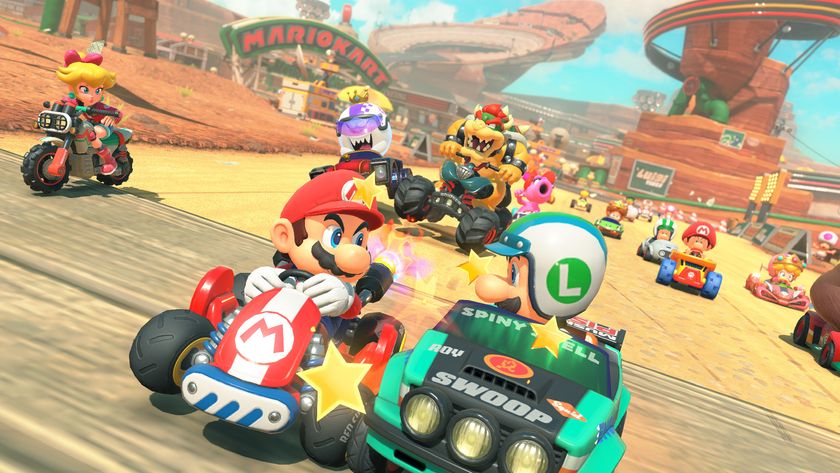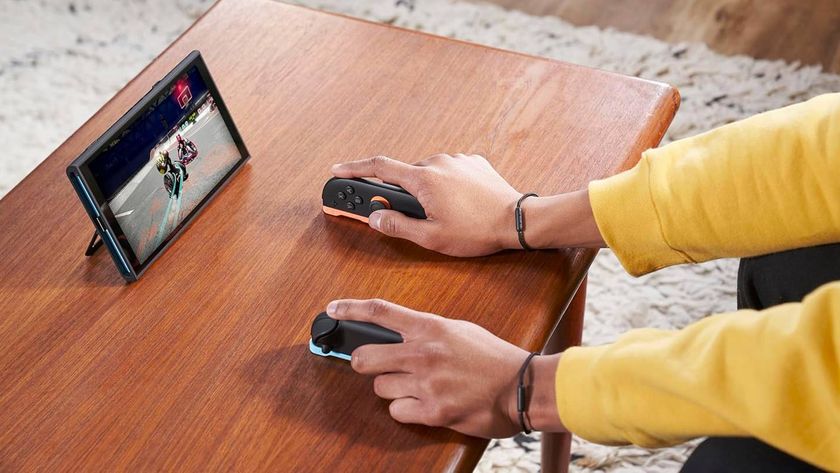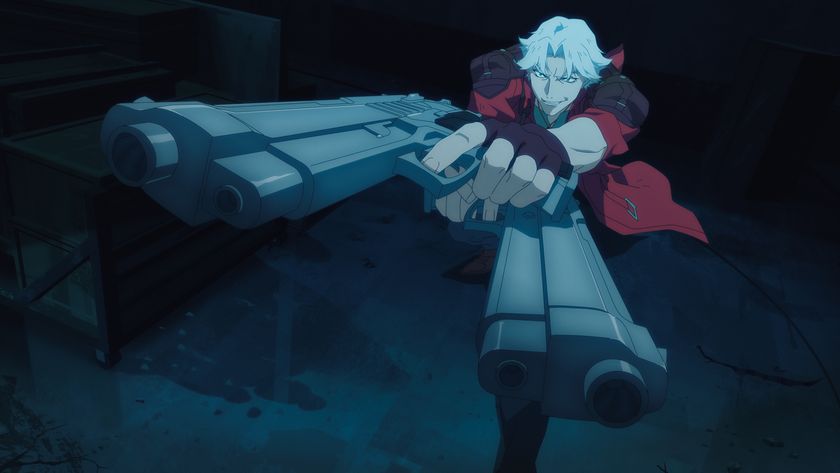Minecraft Active Citizen wants to teach students "small actions have ripple effects around the world"
The older I get, the more important projects like Minecraft Active Citizen become – the latest initiative from Minecraft Education Edition is impressive
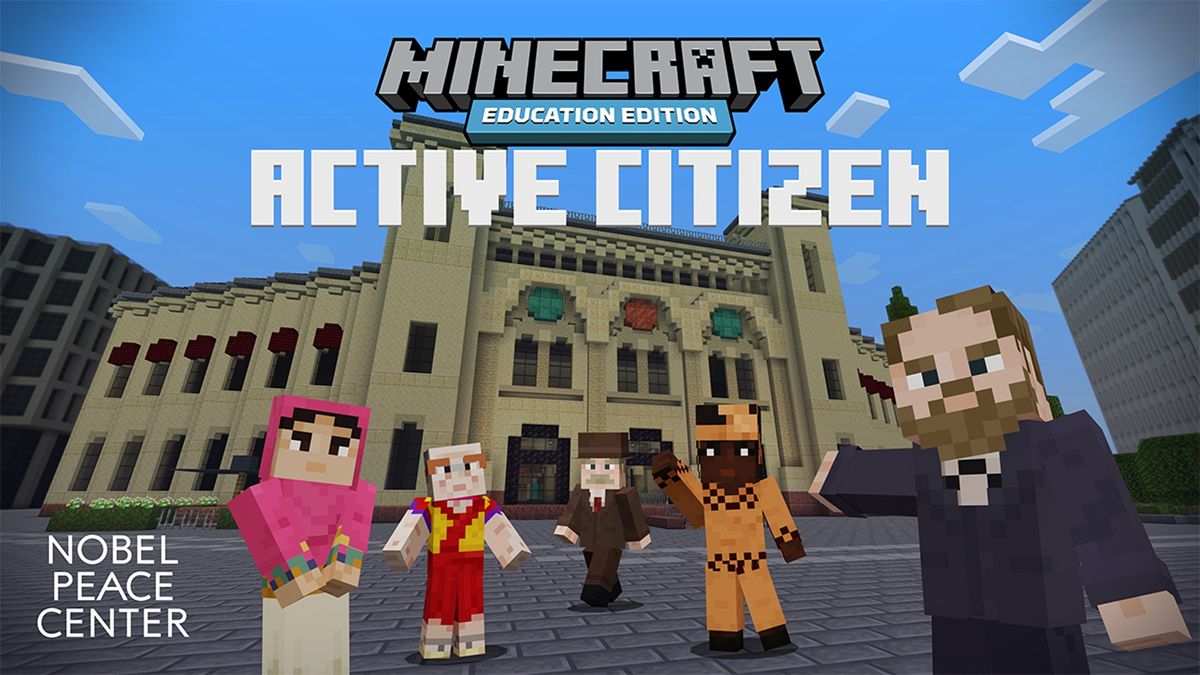
"Why is that man crying, daddy?" As if watching a grown man sobbing into the fluffy hood of his daughter's pink parka jacket isn't heart-wrenching enough, this line, delivered by my own young daughter, peeking at my phone over my shoulder, is the twist of a proverbial knife. Torn between protecting his family and a sense of duty and pride, this man has decided to bid farewell to his loved ones – they, boarding transport bound for a designated Ukrainian safe zone; he, staying put to fight for his country – in an exchange so emotionally-charged that it's difficult to watch.
I miss my wee daughter when she goes to nursery school for a few hours three days a week, for goodness' sake, how on Earth do I explain to her what's going on here? Minecraft Active Citizen – a new playable project that sees Minecraft: Education Edition partnering with the Nobel Peace Center – perhaps can't explain exactly what is happening in Eastern Europe right now to my three-and-a-half year old, but it is designed to explore and extol the virtues of real-world peace to a younger audience. "In-game, students follow the lives of four Nobel Peace laureates," explains Allison Matthews, the head of Minecraft Education, "and by immersing themselves in the actions these laureates took in order to improve their community or create peace in their part of the world, we hope students can learn that small actions have ripple effects around the world and through time."
World building
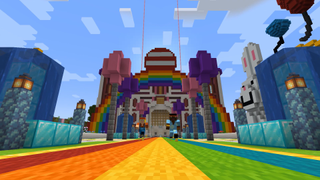
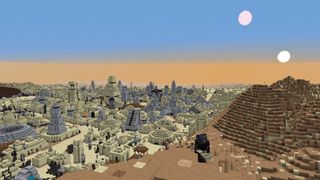
Meet the Minecraft builder recreating the entire Star Wars galaxy one planet at a time
The Minecraft Active Citizen project has been in the works for a while, granted, but it enters the world at a poignant moment in time. Since the launch of Minecraft's Education Edition in 2016, conflict has swept Afghanistan, Ethiopia, Myanmar, Palestine, Iraq, Syria, and Yemen, with terrorist insurgencies, civil unrest, and drug wars having affected many more countries and sovereign states across the globe. Russia's invasion of Ukraine last month marks the latest stain on history – the move itself a major escalation between two nations already locked in conflict since 2014 – and we explored what it's like for game developers in Ukraine, working and living under the shadow of war at ground level. Minecraft Active Citizen, on the other hand, takes a more philosophical stance and macro approach in its pro-peace/anti-war message, but it's impossible to ignore the real-world circumstances that frame its arrival today, March 1, 2022.
Matthews agrees, and says that while she and her team have been working alongside the Nobel Peace Center and non-profit organization Games for Change since the summer of last year, the project's core lessons and themes of championing world peace feel more relevant now than ever. We are of course also still in the midst of a global pandemic, a devastating world event that has killed several millions of people, and has likewise turned the routines of Active Citizen's core audience (8-16 year olds) upside down via sporadic but still ongoing nationally-enforced lockdowns and quarantine measures. The fact that Minecraft can offer familiarity and relatability in its educational setting, then, is invaluable.
"In Active citizen, we're touching on topics that really matter in the real world. So it's not just about how you become a better game player, it's about understanding that if you approach a situation with compassion, or you approach people with understanding and with an attitude of peace, then things can unblock, you can actually make better progress and make lives better than otherwise," says Matthews. "And so those are the sorts of lessons that seem quite subtle, perhaps. But when you play through Active Citizen, there is a real feeling of the impact that you're having, even on the non-player characters in the game when you make certain decisions."
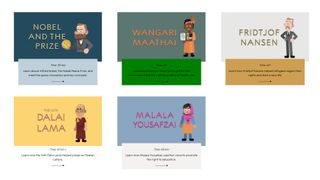
In practice, Active Citizen sees players starting out at the Nobel Peace Center in Oslo, Norway, where they're introduced to the creator of the Nobel Prize, Alfred Nobel, as well as four Peace Prize-winning laureates, Malala Yousafzai, Wangari Maathai, Fridtjof Nansen, and the Dalai Lama. Designed with classroom use in mind, coinciding lesson plans offer extracurricular reading for teachers and students alike, with the ultimate in-game goal for players being to create a unique Minecraft build that represents active citizenship for them; select entries of which will be showcased at a forthcoming Nobel Peace Center exhibition.
Matthews says that her own favorite part of Active Citizen is the 14th Dalai Lama's section, whose famous teachings, she says, have inspired various other facets of Minecraft Education Edition's wider catalog – not least last year's collaboration with the Met Office on Climate Futures. "When you play through his part of the experience, his character repeats, 'be in peace; be in peace,' and I literally could feel the tension coming out of my body," Matthews adds. "You go through different activities, they get harder as you go, and at the end you help a group of NPC villagers, each of who has a problem that impacts the next villager. And when you unlock the problem for each villager, they immediately understand that another person was having trouble too. Those lessons of community, those little gestures of peace and assuming best intent – they are just very powerful. And that's what I'm hoping people will get from this."
Sign up to the GamesRadar+ Newsletter
Weekly digests, tales from the communities you love, and more
Peace together
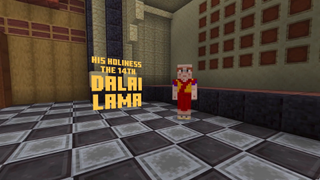
"Those lessons of community, those little gestures of peace and assuming best intent – they are just very powerful. And that's what I'm hoping people will get from this."
Allison Matthews, head of Minecraft Ed.
One of Minecraft's strongest qualities in educational terms – both vanilla Minecraft and Minecraft: Education Edition – is its scope to harness the imagination and passion of its players in order to help them learn without realizing they're learning. The interactive nature of video games helps this to no end, whereby games can be more persuasive in delivering their message compared to more traditional media, such as books and film. The consistency with which video games can convey information is also vital in this process – best exemplified at the beginning of the global pandemic, when real-world rules changed overnight; but when video games provided familiar safe spaces with persistent, unchanging rules.
For so many of the parents I've spoken to since March 2020, this very feature of video games helped dismantle some of mysticism around the medium – where it became clear just how valuable the social elements of online worlds can be, at a time when real-world socializing became so restricted. Matthews adds: "When the world went into lockdown, when young people weren't able to go to school, we realized how important schools are, not just for educational purposes, but for the social aspect too, connecting with their friends and just interacting with other humans. And so we found that games like Minecraft became a safe place to connect with your friends, or just a place where you can have community when you can't have community in real life. I think that gave a lot of credibility to the power of video games for mental wellness and connection."
"We hope that carries into Active Citizen. For younger students, hopefully they'll take away some of those concepts about how small gestures of peace and small actions can have small impacts that then have ripple effects. For older students, I would love to know that teenagers are digging in more deeply into the life stories of the Nobel Peace laureates and being inspired to take what they've learned about peace into the real world."
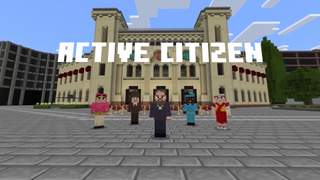
In relative terms, 'peace' to my three-year-old is when her little brother is out with my parents, Granny Jackie and Granda Joe. Peace is when she isn't wrestling for control of her micro scooter that her little brother has taken a shine to since learning to walk, or when I choose to put Gabby's Dollhouse on the TV over the Teletubbies. There will be a joke about twisted world leaders throwing their toys out of the pram in there somewhere, but in all seriousness, my young daughter can't, and shouldn't have to, comprehend situations like the one we're seeing unfold in Ukraine. The man in the video on my phone shouldn't need to choose between what he views as his civil duty and the safety of his family, and his little girl – who can't be much older than my own – certainly shouldn't be forced to say goodbye to her father before boarding a train to unfamiliar surroundings.
Video games' place in all of these discussions – of war, terror, politics, and justice – can feel trivial. I know that I often question the value of writing about video games in the wake of real-world conflict and moral crisis, and as a parent I now view the medium through an entirely different lens than I ever did before. This goes both ways – sure, I might worry about the amount of screen time my wee ones are clocking up during an average week (something which seems to be increasing by the minute at the moment); but I also believe more in projects like Minecraft Active Citizen, much more than I might have done in my formative years.
Video games probably won't ever end wars, but they are invaluable tools for educating and informing children and adults alike. In the words of the Dalai Lama, as he appears both in the real world and as a pixelated 1.8 x 0.6 grouping of blocks: be in peace; be in peace.
Fancy checking out Minecraft Active Citizen? Follow that link to do just that.
For other games like Minecraft just follow that link instead.

Joe Donnelly is a sports editor from Glasgow and former features editor at GamesRadar+. A mental health advocate, Joe has written about video games and mental health for The Guardian, New Statesman, VICE, PC Gamer and many more, and believes the interactive nature of video games makes them uniquely placed to educate and inform. His book Checkpoint considers the complex intersections of video games and mental health, and was shortlisted for Scotland's National Book of the Year for non-fiction in 2021. As familiar with the streets of Los Santos as he is the west of Scotland, Joe can often be found living his best and worst lives in GTA Online and its PC role-playing scene.
